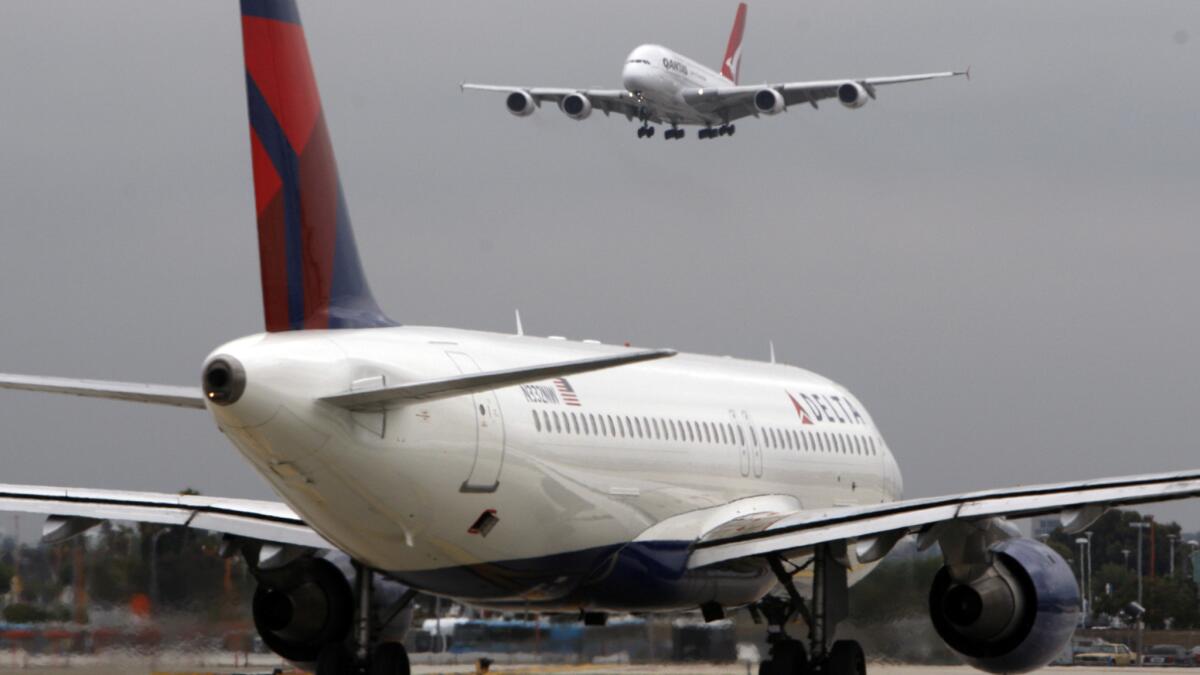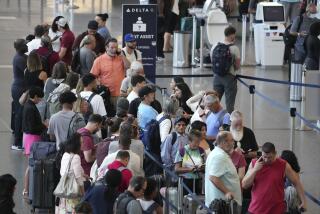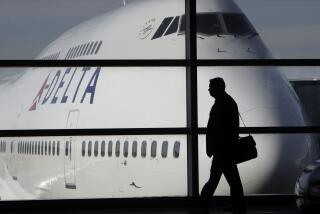Delta eliminates a booking fee but don’t expect others to follow

A Qantas A380 Airbus descends for landing while a Delta jet holds on the runway at Los Angeles International Airport. Delta Air Lines has eliminated a fee for booking flights by phone and at the ticket counters at U.S. airports.
The nation’s biggest airlines combined to generate an estimated $18.1 billion in revenue last year from bag check fees, food and entertainment charges and other income, such as the sale of frequent flier miles.
So why would one of the most profitable carriers in the country forgo a chunk of that money?
Delta Air Lines, the nation’s second-biggest carrier based on passenger traffic, last week eliminated a $25 fee for booking reservations by phone and a $35 fee for booking at ticket counters in U.S. airports.
Most major carriers in the U.S. charge between $15 and $25 to make a reservation via a phone call.
But Delta may not be losing much revenue by eliminating the booking fee because most people book flights online, said Michael Bentley, a partner at Revenue Analytics and former pricing strategist for Delta. He also noted that the booking fee is one of the most hated fees charged by airlines.
“I don’t see this fee as a big part of the company’s budget,” he said.
Bentley suspects that Delta killed the fee as part of its efforts to differentiate itself from its competitors.
Delta may also have the funding cushion to withstand losing the fee. The carrier recently reported $946 million in first-quarter net income, a 27% increase over the same period a year earlier. The hike is largely the result of a 34% drop in quarterly fuel costs year over year.
To read more about travel, tourism and the airline industry, follow me on Twitter at @hugomartin.
More to Read
Inside the business of entertainment
The Wide Shot brings you news, analysis and insights on everything from streaming wars to production — and what it all means for the future.
You may occasionally receive promotional content from the Los Angeles Times.











